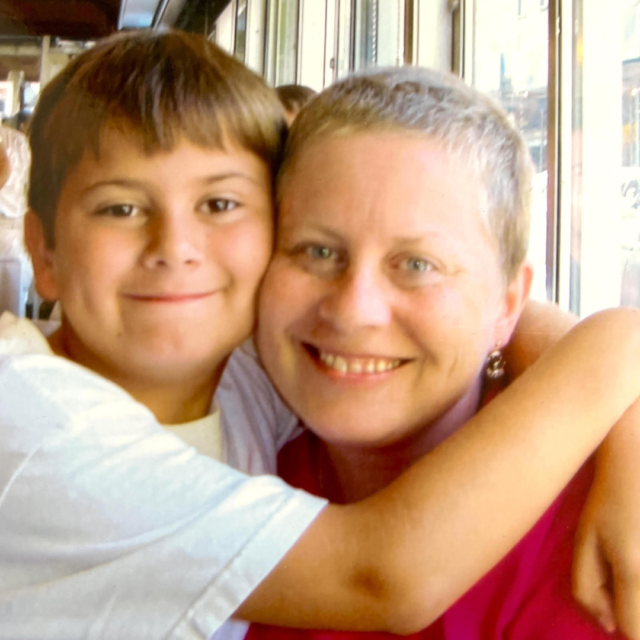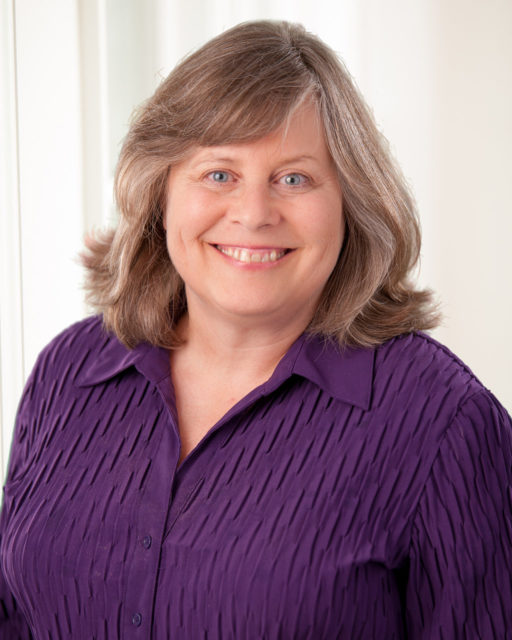
We often search for physicians who can empathize with what we’re going through, whether it is a head cold or a life-changing diagnosis. At Tryon Medical Partners, patients don’t have to look very far. Breast cancer survivor, Nancy Sokany, MD, provides an additional layer of understanding to any of her patients who receive such a diagnosis. Speaking with Dr. Sokany, it is clear that her experience with breast cancer has made her an even more understanding and supportive clinician. In conversation, Dr. Sokany shares more about her journey and how this has influenced her and her connection with patients.
Dr. Sokany received her cancer diagnosis at the height of her career and with two young children at home.
Dr. Sokany was living a busy life when she learned she had cancer – a full-time job as a clinician and two young children (ages 7 and 14) kept her buzzing from place to place. She’d finally made the time to get her annual screening mammogram and was shocked with the news of her diagnosis right before the Christmas holiday.
“I remember it like yesterday. I got the call from my doctor when I was in line to see Santa at the mall,” Dr. Sokany shares. “Trying to make sure my children weren’t afraid, and trying to maintain a sense of normalcy, that was the hardest part of the diagnosis. It was still scary for me to hear, even as a doctor myself.”
After the diagnosis, Dr. Sokany was treated with the best possible care. But even with ideal conditions, breast cancer treatment is a difficult journey. Her treatment plan included chemotherapy, radiation and two separate surgeries. Throughout this, it was challenging to suddenly be experiencing appointments as the patient, not the physician. She notes, “It was very hard, and very humbling, to be so out of control. It was a long process and I had to remind my care team that I wanted to be treated like any other patient.”
Dr. Sokany’s family and friends rallied behind her throughout her treatment.
Going through a life-changing event like breast cancer can feel impossible without the support of family and friends. Dr. Sokany reflects on how vital her community was in her recovery. “My friend and fellow physician was the head of the morale committee during my treatment. She put a note out to all of the physicians and had them sign up for cooking and delivering dinners twice a week,” she remembers. “My son actually called it ‘the magic table’ because dinner would magically appear on the patio table.”
Dr. Sokany highlights the power of taking initiative if you’re looking to support a friend or loved one with cancer. The most impactful moments were when her community helped her out without her even having to ask.
“If you have someone you know who has cancer, don’t ask what you can do. It is difficult to ask for specific help. So just go ahead and drop off some dinner or groceries. That’s what really helps,” she remarks.
Dr. Sokany passes on her wisdom and understanding as she works with her patients.
 Dr. Sokany notices the impact of surviving cancer on the way she can relate with her patients. “A lot of my patients know I survived breast cancer, which inspires them,” she says. “It’s been easier to empathize with patients going through similar journeys.”
Dr. Sokany notices the impact of surviving cancer on the way she can relate with her patients. “A lot of my patients know I survived breast cancer, which inspires them,” she says. “It’s been easier to empathize with patients going through similar journeys.”
Her own experience with cancer makes her more aware of what is going on in the background of a life-threatening illness – how it impacts the family and the kind of pressure and stress it puts on the patient. She’ll now inquire, as part of an appointment, “How is your family doing?” because that is an important part of the picture. She encourages significant others and children to come to appointments so that everyone is kept in the loop.
Above all else, Dr. Sokany continues to emphasize the importance of annual cancer screenings. “I was late with my mammogram,” she says. “If I had just gone sooner, I may not have had to do chemotherapy. I cannot say it enough – it is so important to do your annual mammogram.”
Reach out to Tryon today for help with scheduling your screening mammogram or other cancer screenings, learn more about how to support a loved one with cancer, or talk through the available treatment options.

